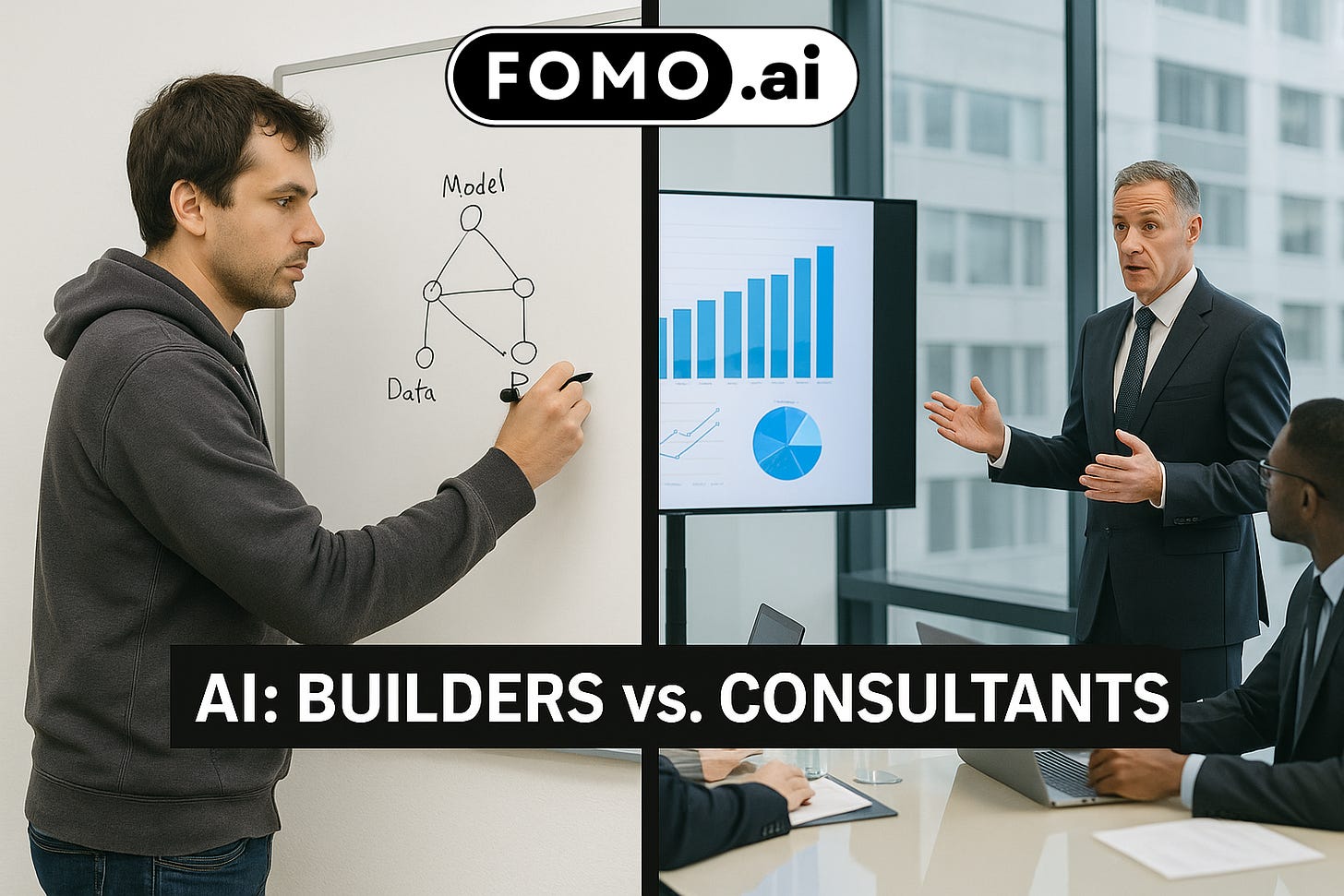Will the Builders or the Consultants win the AI race?
The quiet war.
There’s a quiet war inside AI right now.
On one side are the builders, people like Andrej Karpathy, who shape the tools.
On the other hand are the consultants, firms like McKinsey, who shape the narrative in boardrooms.
This week, both sides dropped big ideas that are pretty contrasting.
Karpathy’s “Software 3.0”
Speaking at Y Combinator’s Startup School, Karpathy outlined what he calls Software 3.0—the next paradigm in computing.
His core thesis:
The new programming language is English.
Large language models (LLMs) aren’t deterministic code, but “people spirits”—stochastic simulations of people.
This explains why LLMs feel human, yet jagged and unreliable.
Karpathy’s caution is refreshing in an era of AI hype. He argues:
Humans must remain in the loop. AI generates, humans validate.
Software design should assume this validator loop is permanent (at least for now).
Keep AI on a short leash: constrain outputs so humans can realistically review them. (If you can only check 10 ads, don’t generate 100.)
In short, Karpathy sees AI as a design problem, not a magic agent.
McKinsey’s Vision
McKinsey, by contrast, pushes the narrative of autonomous AI agents taking over business processes. It’s optimistic—arguably over-optimistic.
And here’s the tension:
Builders like Karpathy focus on the jagged, stochastic nature of LLMs.
Consultants like McKinsey emphasize transformation stories that excite executives.
One vision grounds itself in technical limits. The other sells a future to decision-makers.
This isn’t just an academic debate - McKinsey is shaping how Fortune 500 boards think about AI adoption! Karpathy shapes how developers actually build it.
If the boardroom over-indexes on McKinsey’s hype without understanding Karpathy’s caution, companies risk expensive bets on unreliable autonomy.
The smart path forward: design for “people spirits,” keep humans in the loop, and resist the urge to outsource too much too soon.
👉 What do you think? Should AI be unleashed as McKinsey suggests, or constrained as Karpathy urges?
Published by Dax Hamman, CEO & Co-Founder at FOMO.ai, an AI Search & Marketing expert.


